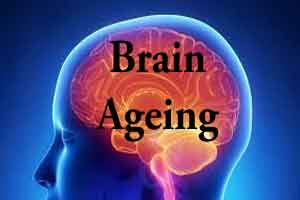- Home
- Editorial
- News
- Practice Guidelines
- Anesthesiology Guidelines
- Cancer Guidelines
- Cardiac Sciences Guidelines
- Critical Care Guidelines
- Dentistry Guidelines
- Dermatology Guidelines
- Diabetes and Endo Guidelines
- Diagnostics Guidelines
- ENT Guidelines
- Featured Practice Guidelines
- Gastroenterology Guidelines
- Geriatrics Guidelines
- Medicine Guidelines
- Nephrology Guidelines
- Neurosciences Guidelines
- Obs and Gynae Guidelines
- Ophthalmology Guidelines
- Orthopaedics Guidelines
- Paediatrics Guidelines
- Psychiatry Guidelines
- Pulmonology Guidelines
- Radiology Guidelines
- Surgery Guidelines
- Urology Guidelines
Exercise to slow down brain's ageing clock by 10 years

Washington D.C. : Think of workouts as a brain's best friend. A new study linked regular exercise in older people to a slower rate of decline in thinking skills that occurs with aging.
People who reported light to no exercise experienced a decline equal to 10 more years of aging as compared to people who reported moderate to intense exercise, according to the population-based observational study.
Study author Clinton B. Wright of the University of Miami said that the number of people over the age of 65 in the United States is on the rise, meaning the public health burden of thinking and memory problems will likely grow. The study showed that for older people, getting regular exercise may be protective, helping them keep their cognitive abilities longer.
When looking at people who had no signs of memory and thinking problems at the start of the study, researchers found that those reporting low activity levels showed a greater decline over five years compared to those with high activity levels on tests of how fast they could perform simple tasks and how many words they could remember from a list.
The difference was equal to that of 10 years of aging. The difference also remained after researchers adjusted for other factors that could affect brain health, such as smoking, alcohol use, high blood pressure and body mass index.
Wright concluded that the results suggest that moderate to intense exercise may help older people delay aging of the brain, but more research from randomized clinical trials comparing exercise programs to more sedentary activity is needed to confirm these results.
The study is published in the online issue of Neurology.
People who reported light to no exercise experienced a decline equal to 10 more years of aging as compared to people who reported moderate to intense exercise, according to the population-based observational study.
Study author Clinton B. Wright of the University of Miami said that the number of people over the age of 65 in the United States is on the rise, meaning the public health burden of thinking and memory problems will likely grow. The study showed that for older people, getting regular exercise may be protective, helping them keep their cognitive abilities longer.
When looking at people who had no signs of memory and thinking problems at the start of the study, researchers found that those reporting low activity levels showed a greater decline over five years compared to those with high activity levels on tests of how fast they could perform simple tasks and how many words they could remember from a list.
The difference was equal to that of 10 years of aging. The difference also remained after researchers adjusted for other factors that could affect brain health, such as smoking, alcohol use, high blood pressure and body mass index.
Wright concluded that the results suggest that moderate to intense exercise may help older people delay aging of the brain, but more research from randomized clinical trials comparing exercise programs to more sedentary activity is needed to confirm these results.
The study is published in the online issue of Neurology.
Next Story
NO DATA FOUND

Disclaimer: This site is primarily intended for healthcare professionals. Any content/information on this website does not replace the advice of medical and/or health professionals and should not be construed as medical/diagnostic advice/endorsement or prescription. Use of this site is subject to our terms of use, privacy policy, advertisement policy. © 2020 Minerva Medical Treatment Pvt Ltd